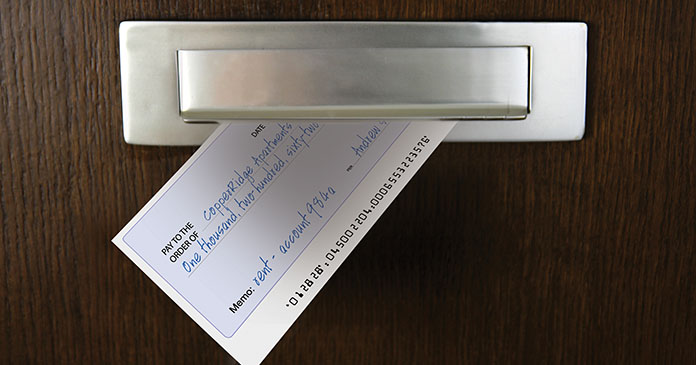The new report also includes any property tax liens and whether you’ve fallen behind on your homeowner’s association dues. It may reflect that you now owe more than your house is worth or if you own any other real estate properties outright. It also is supposed to catch mortgages made by smaller lenders that the big credit bureaus may have missed.
The idea, CoreLogic says, is to provide lenders with more details about prospective borrowers, supplementing what they already know through the more traditional credit reports furnished by the big three credit bureaus, Equifax, Experian and TransUnion. Moreover, CoreLogic has formed a partnership with FICO—the provider of one of the most popular credit scores used by lenders—which will formulate a new consumer score based on the new data.
Perhaps it’s not surprising that a company decided to pull together this information, since much of it is already publicly available. But because it comes on top of all the other information that’s being collected about you—your exact location at every minute, where you’ve been on the Web—you can’t help but feel that some of these companies know more about your activities than your spouse.
While the CoreScore credit report became available to all types of lenders on at the end of November, the actual score, which will be ready in March, is being created specifically for mortgage and home equity lenders, though it could eventually be developed for other types of credit.
For many consumers, the files are likely to reveal black marks that previously went undetected, which may damage an otherwise clean record. But the companies contend that it works both ways: The added information could help consumers with thin credit files by illustrating positive behaviors elsewhere, say making timely rent payments.
So why now? Clearly, the two companies saw a business opportunity. Lenders, who just a few years back looked the other way, remain particularly skittish about mortgage lending and are looking for more information about prospective borrowers’ ability to pay their debts.
“Lending is very constrained and origination volumes need to grow to make for a profitable mortgage business,” said Joanne Gaskin, director of product management global scoring at FICO. “So lenders are looking for ways to expand, but to expand safely.”
An estimated 100 million American consumers will have a CoreScore credit report, while more than 200 million people have traditional reports from the big three bureaus. Though the new information can influence a lender’s decision, the new score isn’t replacing the classic scores used in the automated mortgage underwriting systems kept by Fannie Mae, Freddie Mac or the Federal Housing Administration, which buy or back the vast majority of mortgages (though CoreLogic said it has let the agencies know what it is doing). But the added information may sway a lender to charge you more (or less) in interest on a mortgage. Lenders of all stripes, including auto lenders, have access to the reports, and they will be marketed to employers and insurers, too.
Gaskin said that FICO was still tweaking the credit score’s formula. But the next step is to build something that will try to get even deeper inside your financial mind: The company plans to create a more sophisticated tool that will predict how you might behave under different loan terms.
The reason all of this is such a big deal, according to John Ulzheimer, president of consumer education at SmartCredit.com, is that CoreLogic already has major inroads with many lenders. When lenders want to pull your credit file, they go to a company like CoreLogic, which collects all three reports from the traditional bureaus, cleans them up a bit and merges them into a more user-friendly report. “They already have this massive market of mortgage companies that buy these credit reports from them,” he said. “It’s not like they have to go out and convince the companies to work with them.”
CoreLogic said that several national lenders had expressed interest in the report and the score. The company gleans its information from a variety of databases and sources, including its own customers, and says that it updates its reports daily. It says, for instance, that a new mortgage obligation doesn’t show up on a traditional report until about 60 days after closing, whereas it sees the new mortgage within 23 days.
A lot of its information is derived from the nation’s courthouses and public records. And through its SafeRent business, it has “substantial coverage” of the multifamily rental management companies. It receives information on payday loans through its Teletrack unit, which agreed in June to pay $1.8 million to settle Federal Trade Commission charges that it sold its credit reports to marketers, which is against the law (CoreLogic declined to comment).
Next year, it will begin to evaluate whether to include even more data, including your payment history on utility and cellphone bills.
All of this worries consumer advocates like Chi Chi Wu, a staff lawyer at the National Consumer Law Center, who questioned the type of information being fed into the new files. When it comes to utilities, she said “there is evidence that all it could do for a substantial portion of low- and moderate income consumers is make their credit files worse.” That’s because some consumers tend to fall behind on their bills during the more expensive winter months, but typically catch up later in the year.
And sometimes, she said, people don’t pay their rent for very good (and legal) reasons; perhaps their landlord failed to correct a vermin or hot water problem. Will that be fully and fairly reflected on the report?
Payday loans are another issue, she said. “Payday loans and other high-cost credit are very onerous, and people have trouble paying them because they have a 400 percent A.P.R.,” or annual percentage rate, she said, adding that she believes that this type of data is irrelevant for the vast majority of jobs.
Since CoreLogic is now subject to the Fair Credit Reporting Act, which governs consumer reporting agencies, you will be able to dispute any information that you believe is incorrect. But if the data is accurate, albeit unflattering, it will trail you for a long time. Information culled from public records stays on your report for about seven years (or 10 years for bankruptcies).
If you do find any inaccuracies-and the big three bureaus have been known to make their fair share of mistakes, including confusing the records of people with similar names-CoreLogic said that you can file a dispute (instructions are on its Web site). “Data dispute and correction processes are in place to ensure that any errors can be quickly and accurately resolved,” said Tim Grace, SVP of product management for CoreLogic. “In fact, one of the significant consumer benefits of the report is the availability of formerly disparate credit behavior data on a unified report that consumers can access, validate and correct.”
You should probably check the new credit report for any errors, so you’ll want to get a copy to review. Within a year, the new report will be available at AnnualCreditReport.com, where consumers are entitled to one free copy annually. That same rule applies to each of the big bureau’s reports on the site currently.
CoreLogic and FICO said that you will probably be able to buy the new score at some point. If you are turned down for a loan or don’t get the best rate, lenders are generally required to send you a notice that includes the score, as well as information about how your score ranks nationally and the major factors that weighed it down. But if lenders use more than one score to judge you, they can choose which one they want to include in the notice.
While the credit bureaus may not yet know every last detail about your financial life, you should assume that they are watching.
Author: Tara Siegel Bernard, NY Times














